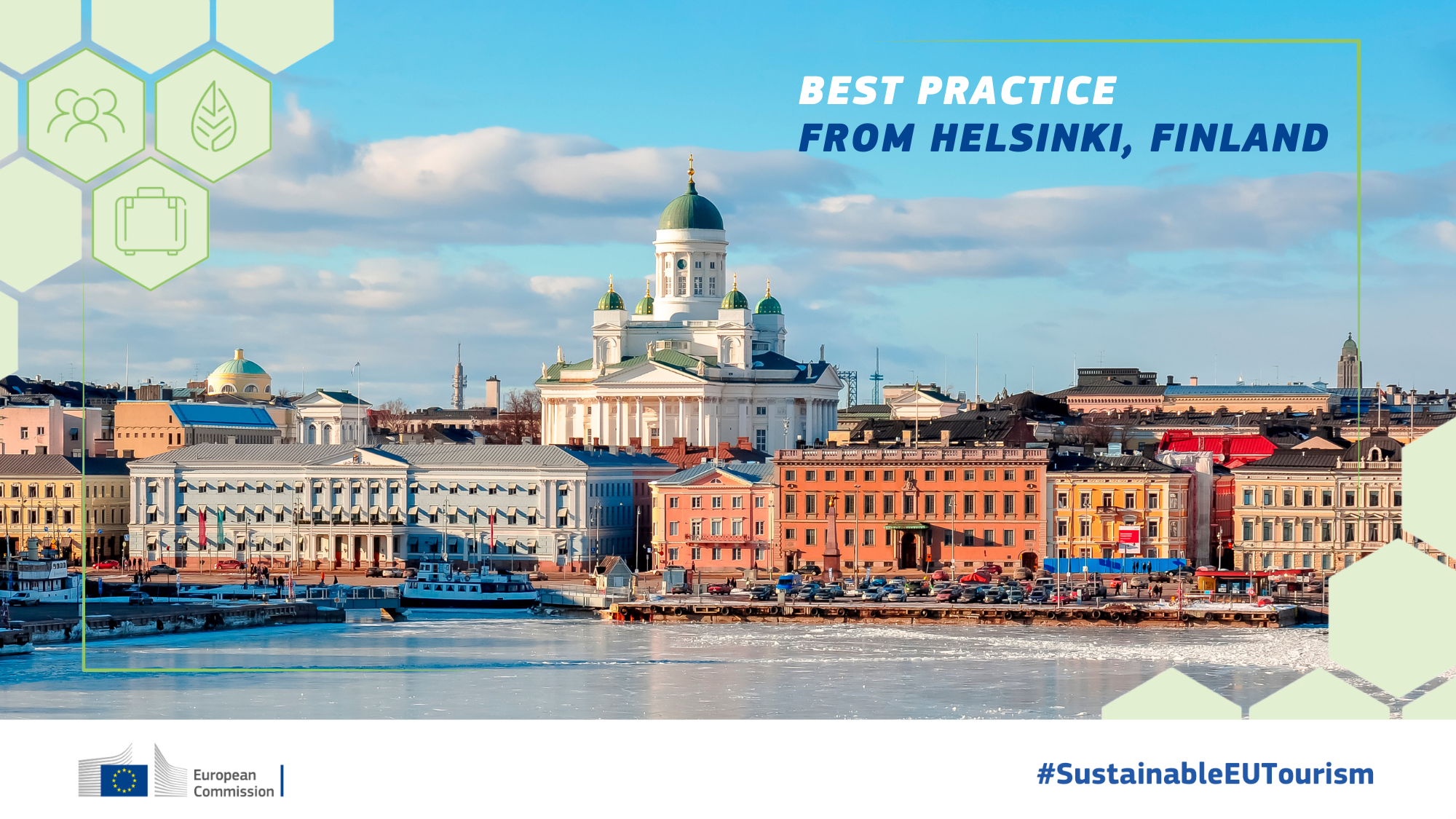Best practices
18 June 2025
Sustainable EU Tourism project - best practice: Helsinki
Best practices
18 June 2025
Coastal, maritime and inland water tourism
Cultural tourism
MICE tourism
+4 more
Login / create an account to be able to react

Helsinki, Finland, has strengthened its position as a safe and resilient tourism destination by developing an integrated crisis preparedness and safety strategy. Through strong collaboration among public authorities, stakeholders, and the use of digital tools, the city ensures that sustainable tourism can thrive despite global and regional challenges.
Topics
Finland
Destination Management & Marketing Organisations
Local Authorities
-
Specific types of tourism
-
-
Coastal, maritime and inland water tourism
-
Cultural tourism
-
MICE tourism
-
Urban/city tourism
-
-
Transition Pathway Strategic Areas
-
-
Best practices, peer learning and networking
-
Governance of tourism destinations
-
-
Business activities
-
-
Activities of associations and other organisations supporting tourism
-
Share
Helsinki, Finland, has been recognised as a best practice by the Sustainable EU Tourism project for its integrated approach to tourism safety and crisis preparedness.
In response to external risks such as the COVID-19 pandemic and geopolitical tensions, the city launched a dedicated project between 2020 and 2022 to strengthen the resilience of its tourism sector. Led by the City Council’s Safety and Preparedness Team and the Helsinki Tourism and Event Safety Steering Group, the initiative resulted in the creation of a comprehensive safety plan, regular coordination with local stakeholders, and the publication of Compass, a practical handbook for tourism and event safety.
The city also launched DataLokki, a data platform offering real-time insights and indicators to guide risk management and product development, and activated the Helsingin Tekijät network, bringing together over 140 tourism and hospitality actors for knowledge sharing and joint preparedness.
This work has ensured that tourism is now fully integrated into the city’s emergency planning and better supported at both local and national levels.
Helsinki’s experience highlights the importance of safety, data, and collaboration as pillars of sustainable tourism development in a changing global environment.
For more details on the key challenges the destination has faced, and the solutions implemented to address them, please refer to the attached document.
#Destination management #Resilience planning #Sustainable tourism #Innovation in tourism #Stakeholder engagement #Tourism development
Documents
Comments (0)
See also
-
14
Sustainable EU Tourism - Key challenges and best practices
- Categories
- Coastal, maritime and inland water tourism Cultural tourism Ecotourism +64 more
-
40
Crisis Management and Governance in Tourism project: Re-open EU
- Categories
- Coastal, maritime and inland water tourism Cultural tourism Ecotourism +19 more
-
26
Lahti: A finalist in the 2025 European Capital of Smart Tourism competition
- Categories
- Coastal, maritime and inland water tourism Cultural tourism Ecotourism +39 more



